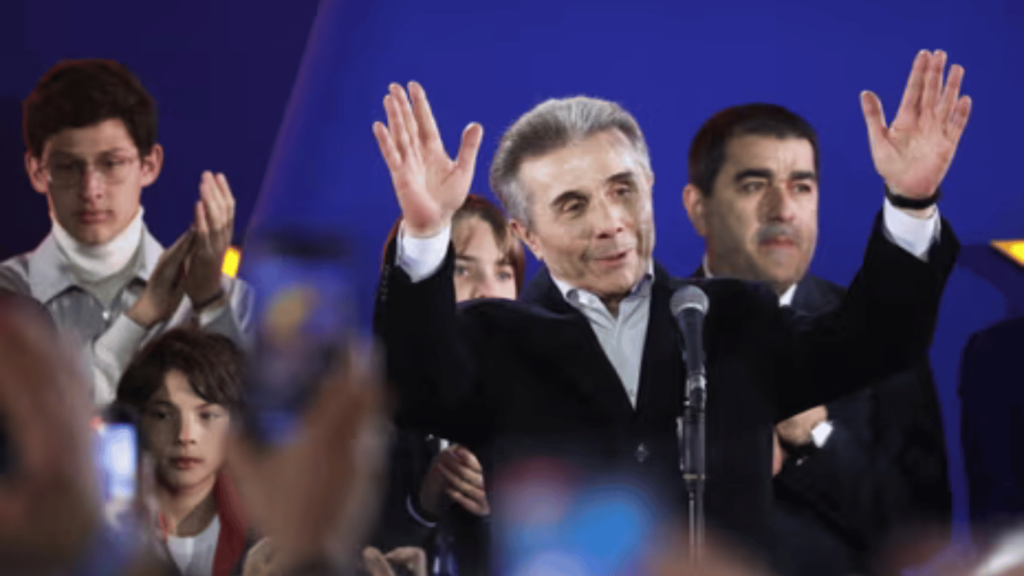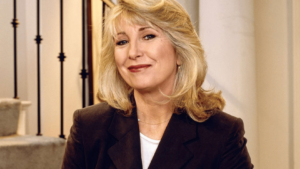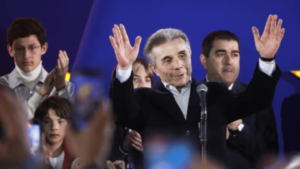
Georgia, pro-Western opposition groups are rejecting election results that they say unfairly gave victory to the ruling Georgian Dream party, led by billionaire Bidzina Ivanishvili, who claimed 54% of the vote. This election, seen as crucial for Georgia’s future in Europe, has sparked controversy, especially as initial exit polls by Western pollsters showed very different results. Tina Bokuchava from the opposition United National Movement accused the ruling party of falsifying the election and “stealing the vote” from the people.
| Israel vs Iran: The Reasons Behind Israel’s Attack on Iran: A Closer Look |
| Watch on YouTube : Happy Ending | What Comes After Love | Episode 6 Finale Recap |
Opposition leader Nika Gvaramia accused the ruling Georgian Dream party of staging a “constitutional coup,” while analysts doubted the party’s increased vote share. Both Dream and four pro-EU opposition groups had claimed victory based on conflicting exit polls. Many Georgians voted in large numbers, but there were reports of vote violations and violence near polling stations.
An opposition official reported being attacked by supporters of Georgian Dream, while a group of 2,000 election observers, My Vote, stated that due to the fraud and violence, the results do not reflect the true will of Georgian citizens. The opposition sees this election as a choice between aligning with Europe or Russia, marking it as Georgia’s most critical vote since independence from the Soviet Union in 1991.
Discrepancies and Delays: Election Results Spark Criticism and Claims of Bias
After voting ended, two exit polls by Edison and HarrisX for opposition TV channels showed Georgian Dream with about 41% of the vote, while the opposition groups had around 49-52%. However, a poll by pro-government Imedi TV gave Georgian Dream 56%. The central election commission (CEC) delayed initial results, though it had promised to release 90% within two hours of polls closing with a new electronic system; results were only near-complete by Sunday morning.
The CEC faced criticism for rushing electoral reforms and appearing too close to the government. HarrisX’s Dritan Nesho noted discrepancies in Tbilisi results, where opposition support was known to be strong, but Georgian Dream showed a 45% lead in some districts.
Georgian Dream Claims Victory as Opposition Warns of Lost European Future
Dream has claimed a majority in parliament, as the combined opposition groups reportedly gained only about 37% of the vote based on preliminary results. Under Georgia’s new proportional representation system, winning 50% of the vote secures half of the 150 parliamentary seats, and no other parties reached the 5% threshold to enter parliament.
Georgian Dream’s leader, Bidzina Ivanishvili, celebrated the win as a rare achievement in challenging times. However, opposition leaders disagreed, with Tina Bokuchava saying they would not let Georgia’s pro-European future be taken away.
Opposition supporter Levan Benidze called this a critical, potentially turning point moment, despite the geopolitical risks from Russia.
Although Georgia was granted EU candidate status last December, its accession process was frozen by the EU due to concerns over “democratic backsliding” and a controversial law targeting groups with Western funding, similar to Russian policies. Moscow still views former Soviet states as within its influence and likely welcomed Georgian Dream’s “pragmatic” approach toward Russia, as well as Brussels’ pause on Georgia’s EU membership path.
Election Tensions Rise: Ivanishvili’s Anti-Western Rhetoric and Allegations of Fraud
Bidzina Ivanishvili’s rhetoric has grown more anti-Western, suggesting that another Georgian Dream term might bring Georgia closer to Russia. After voting, he claimed the country faced a choice between a government serving the people and an opposition following “foreign agents.” Ivanishvili accused the opposition of supporting a “global war party” and trying to involve Georgia in Ukraine’s conflict, while portraying Georgian Dream as the peace-keeping option, which resonated with some voters like 55-year-old Tinatin Gvelesiani.
Reports indicated widespread election violations, including voter intimidation and ballot-stuffing. As polls neared closing, President Salome Zourabichvili urged opposition voters not to be intimidated.
Azat Karimov from the United National Movement described being attacked while investigating alleged vote-rigging and bribery by Georgian Dream officials. Meanwhile, a Georgian group reported Russian disinformation aimed at the election, while Russia denied interference, instead accusing the West of attempting to influence the outcome.



